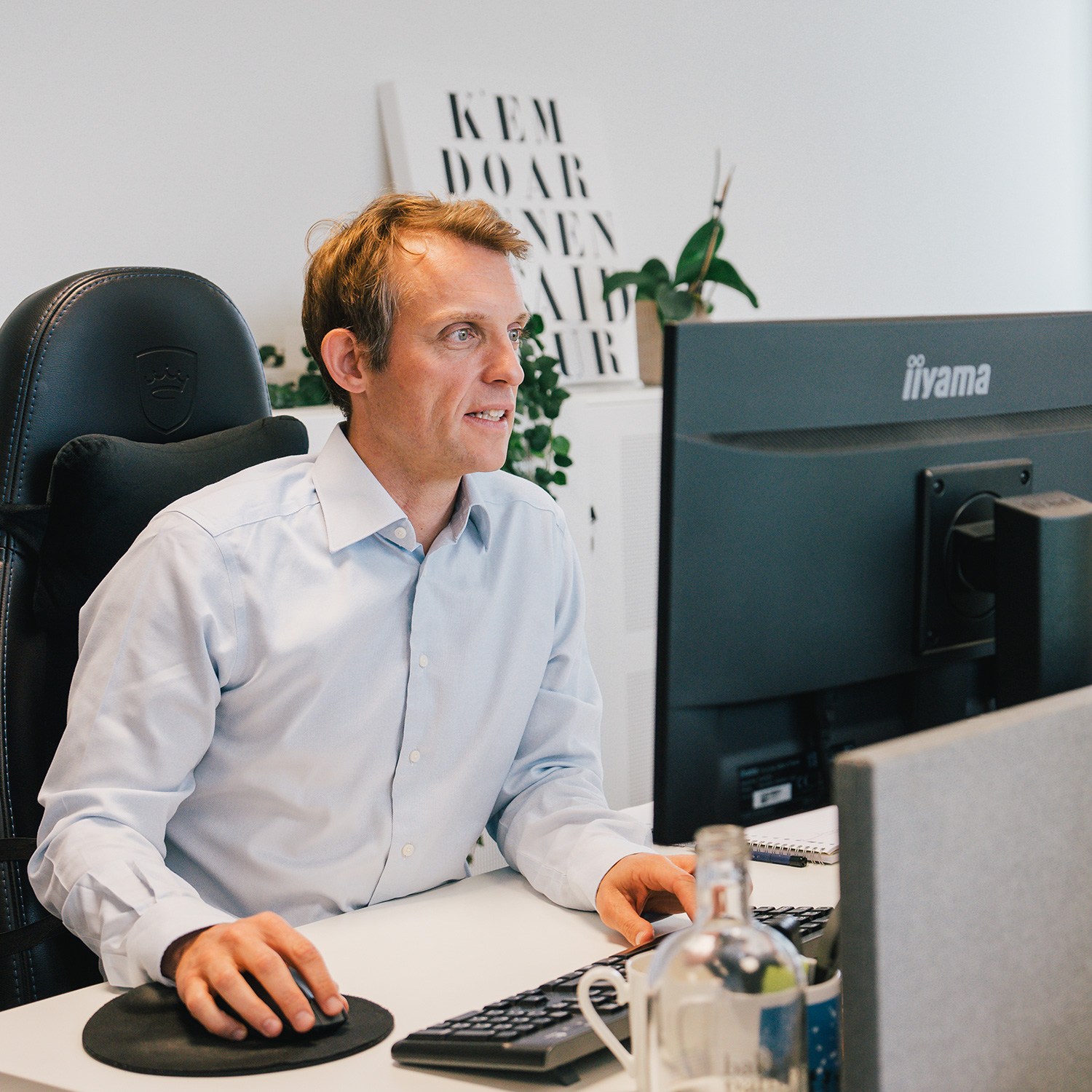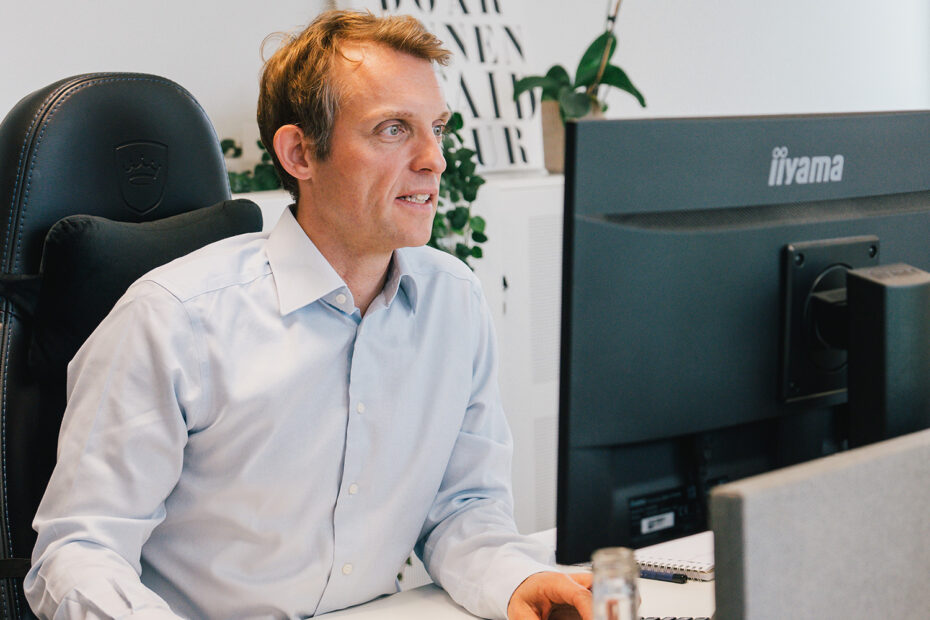Why your recruiter is like your best friend and why he’s not – by Anthony Albers

A couple of days ago I had a major electricity issue, resulting in a dysfunctional boiler. For a household with three young children and a spouse enjoying hot showers, this is a major issue. The situation got even worse when I had an electrician on the phone, telling me that, due to an endless backlog, he didn’t accept new assignments before… the end of the year!! (we called on Monday September 7th). At that very moment I realized I was in trouble. Why? Because I had an urgent need that required the intervention of a third party and my network didn’t include any individuals with the right skills to solve the issue. And when your need is urgent, it often requires the intervention of somebody with goodwill, willing to do an effort or go an extra mile, just to help you out. Well guess what? It’s always harder to convince people to make this extra effort for you if you don’t already have an existing relationship or history with them.
I like my accountant, I like my insurance broker and I like my banker. The three of them answer my calls, respond to my e-mails rapidly and give the best advice they can when asked for it. I have regular contact with them, on the phone and face to face, and over the years we have built a solid professional relationship with a definite personal touch. The day I’ll call them with an urgent need, I’m sure they’ll go the extra mile to help me out the best they can.
The whole boiler episode made me reflect about my “second layer” of “personal stakeholders”. Should I wait to get into trouble before scouting for a good lawyer? Should I keep in touch with a couple of real estate agents to browse the house market just in case my next dream house becomes available? The reason I raised these questions is because I regularly give this very advice to my candidates. You’d better identify a couple of good recruiters and keep in touch on a regular basis. These “preferred recruiters” are like best friends, you don’t need a whole bunch of them, but a couple you can build strong and trustworthy long term relationships with. Good relationships of trust will always end up in win-wins and will have a positive effect on your career management. Now I hear you thinking: there are so many actors on the market, who should I connect with? While there is obviously no golden rule to answer this question, here are a few hints to keep in mind.
1/ First of all, don’t put all your eggs in the same basket. You might have a specific recruiter you prefer working with (because he/she has the best possible approach from your point of view), but he/she can only cover a limited portion of the market. Why? Because there is only 24h in a day and maintaining a qualitative network is a time consuming activity. On the other hand, it isn’t feasible to develop a trustworthy relationship and to keep regular contact with a huge number of recruiters. Hence, it seems sensible to identify a limited number of baskets and spilt your eggs in between them.
2/ When selecting your “preferred recruiters”, only consider people with whom you feel a genuine connection and good affinity. The name and reputation of an agency can be relevant, but in the end it’s all about the recruiter you’re in touch with. Agencies with a positive reputation have certainly earned their good name on the market (same goes for bad reputation agencies). However, I know several agencies that employ great recruiters… and terrible ones too. But, as my definition of a great recruiter is not necessarily the same as yours, trial and error seems an adequate approach to explore the headhunting market. Do you prefer a thorough approach that can be slower or a fast-paced but less exhaustive one? Reach out to the recruitment community and find out for yourself by talking with different recruiters. The proof of the pudding is, yet again, in the eating.
3/ Many people enter the recruitment business but very few last. Also, it takes time and hard work to develop a qualitative network. Assuming you only have a limited time and energy to invest in keeping in touch with your “preferred recruiters”; it’s probably a good call to go for more experienced recruiters, whom will most likely remain in the business for the years to come and have already developed a strong network. Be aware that the number of years of experience is not always relevant, as some experienced recruiters evolve towards full management roles and lose touch with the operational reality of recruitment.
4/ Most awesome recruiters (not all of them) excel in their craft because they have specialized and developed in a certain area. This can be in a particular domain (finance, engineering, HR,…), a specific job (developers, project managers,…) or a specific industry (FMCG, real estate, pharmaceutical,…). Seasoned and specialized recruiters will speak your tongue, know the key stakeholders in your area and appreciate the true value of your achievements. Apart from connecting you to the right people in the labor market, they will most probably be good counsellors when career management advice is needed.
As mentioned before, like with your best friends, investing time (and effort) in long term relationships with a limited number of recruiters is most probably a smart move in terms of career management. Not only will they browse the market with your profile, preferences and ambitions in the back of their head. They will also present you the best talents when you’ll be looking for your new team member or your (potential) successor. Why? As they already know and understand the way you are and function, they will most probably make better assessments in selecting the most suitable talent and personality for you and your current team. And since they appreciate and value your long term relationship, they will most likely call you first when the next top talent appears on their radar. Since most career moves are directly linked with (the lack of) succession planning, keeping a close eye on the candidate market is essential for every manager, director and executive.
But your “preferred recruiters” are not your best friends and will most probably never cross the professional line. They seek for respectful and professional relations. They will be happy to help you out when they can but will ask the same from you. You will ask them what’s happening in the market, they will ask you what’s happening in your company. You will ask them for advice, they will ask you for references. In the end the right balance and mutual trust will most likely result in a win-win outcome. And the day you’ll have an urgent need career-wise, such as I had with my boiler last week, your “preferred recruiters” will be happy to go many extra miles for you.
START VANDAAG
EN VIND HIGH-END
TALENT.
Alles begint met een gesprek. Laat een bericht achter en ontdek hoe we u kunnen helpen.
We contacteren u zo snel mogelijk terug.


